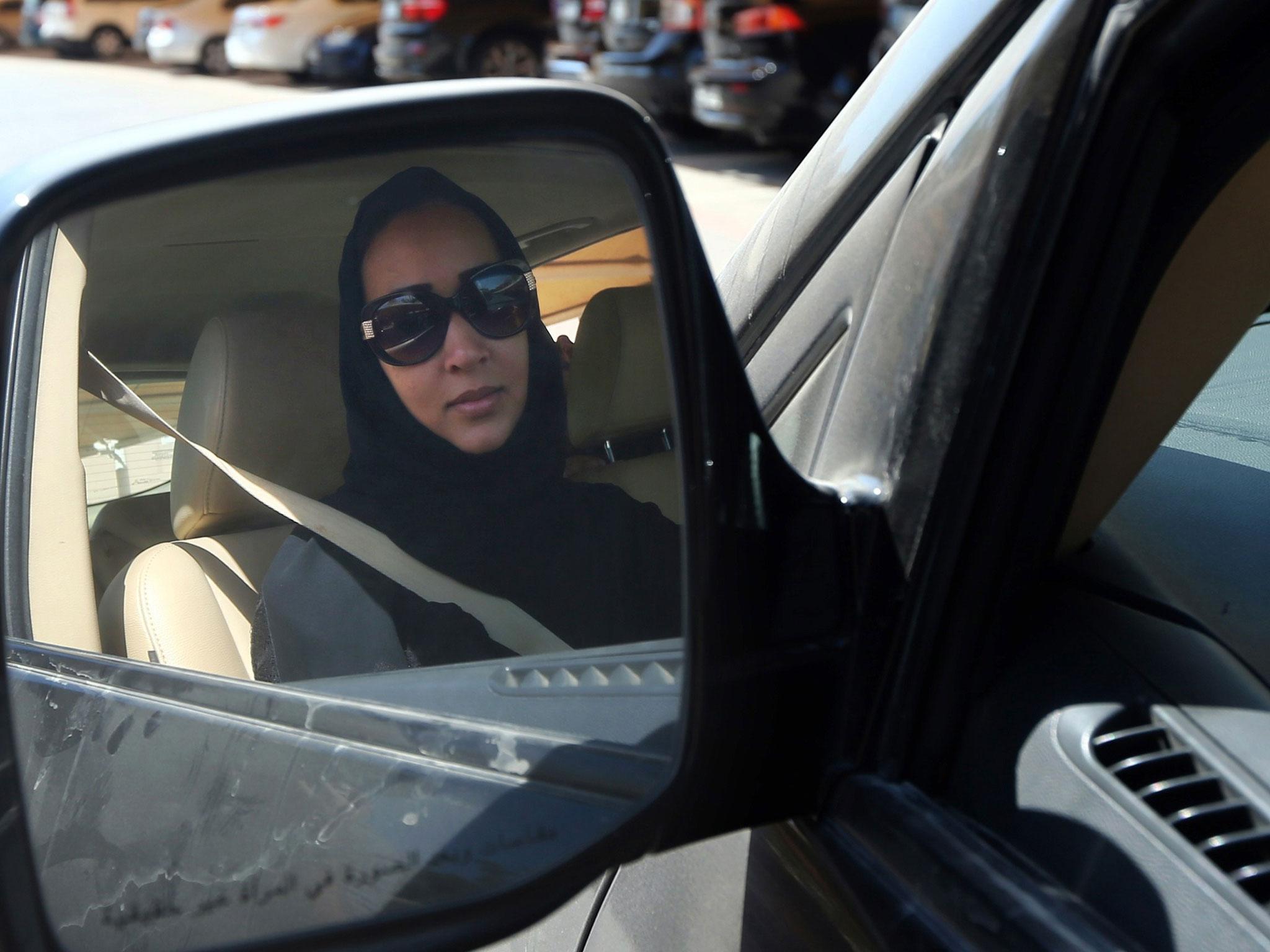Saudi Arabia lifts ban on women driving
Change will be fully implemented by 2018, royal decree from King Salman bin Abdulaziz Al Saud states

Your support helps us to tell the story
From reproductive rights to climate change to Big Tech, The Independent is on the ground when the story is developing. Whether it's investigating the financials of Elon Musk's pro-Trump PAC or producing our latest documentary, 'The A Word', which shines a light on the American women fighting for reproductive rights, we know how important it is to parse out the facts from the messaging.
At such a critical moment in US history, we need reporters on the ground. Your donation allows us to keep sending journalists to speak to both sides of the story.
The Independent is trusted by Americans across the entire political spectrum. And unlike many other quality news outlets, we choose not to lock Americans out of our reporting and analysis with paywalls. We believe quality journalism should be available to everyone, paid for by those who can afford it.
Your support makes all the difference.The King of Saudi Arabia has issued a decree allowing women to drive, state media has said.
The order – issued by King Salman bin Abdulaziz Al Saud – overturned a longstanding policy which had become a powerful symbol of oppression. The conservative kingdom is currently the only country where the act of women driving is forbidden.
The move was announced on television and also by the Saudi Ministry of Foreign Affairs, with the royal decree mandating the creation of a ministerial body to give advice on the practicalities of the edict within 30 days and a full implementation of the order by June 2018.
“The royal decree will implement the provisions of traffic regulations, including the issuance of driving licences for men and women alike,” the state-run Saudi Press Agency said.
Saudi Arabia is a Muslim monarchy ruled according to Sharia law, with the royal decree stipulating that the new rules must “apply and adhere to the necessary Sharia standards”. State media said that the Council of Senior Religious Scholars – the country's highest religious authority that advises the King on religious matters – had approved the permissibility of the decree.
Saudi officials and clerics have provided numerous explanations for the ban in recent years. Some clerics have said that it was inappropriate in Saudi culture to drive, while others have said that male drivers would not know how to handle driving with women in the cars next to them. A number conservative clerics have argued that allowing women to drive would corrupt the wider Saudi society and lead to sin.
Since the 1990s, women's rights activists in the kingdom have been pushing for the right to drive, saying that it represents their larger struggle for equal rights under the law. A number of women have been arrested for defying the ban.
With Saudi law enforcing a strict form of Sunni Islam known as Wahhabism, it is not entirely clear yet how the new rules will work in relation to other remaining restrictions. These include laws which require women to be accompanied by a male "guardian" when they leave their homes.
The momentum to change the policy has picked up in recent years with the rise of Crown Prince Mohammed bin Salman Al Saud, son of the King and heir to the throne. Crown Prince Mohammed bin Salman has laid out a far-reaching plan two years ago, labelled Saudi Vision 2030, which looks to overhaul the kingdom's economy and society and reduce its dependence on oil.
That plan includes diversifying the economy and creating new sectors for young people to work in, as well as laying on more cultural events such as concerts.
Low oil prices have limited the government jobs that many Saudi families have relied on and authorities are looking to push more citizens, including women, into employment. However, the cost of hiring private drivers to take them to work, eating up wages, has diminished the incentive for women to look for work.
The move to let women drive may face some opposition in the country, with Saudi authorities facing a social media backlash earlier this month after women were allowed into the country's national stadium for the first time as part of celebrations launched to mark the 87th anniversary of Saudi Arabia's founding.
But many have welcomed the development as an important step. Manal al-Sharif, an activist and an organiser of the Women2Drive campaign who has also been imprisoned for driving, said on Twitter that Saudi Arabia would “never be the same again”.
Prince Khaled bin Salman, the new Saudi ambassador to Washington, said it was the right time for Saudi Arabia to do the right thing and said his government viewed women driving as a social issue, not a religious or cultural matter. He said Saudi Arabia would recognise driver's licences issued to women in other Gulf Co-operation Council countries, but would not comment on whether Saudi Arabia would take other steps to expand rights for women.
US State Department spokesman Heather Nauert called the new decree “a great step in the right direction”.
Join our commenting forum
Join thought-provoking conversations, follow other Independent readers and see their replies
Comments